Donald Trump's T-shirt battle, and the surprise trademarks he actually owns
Why size could matter to the Supreme Court
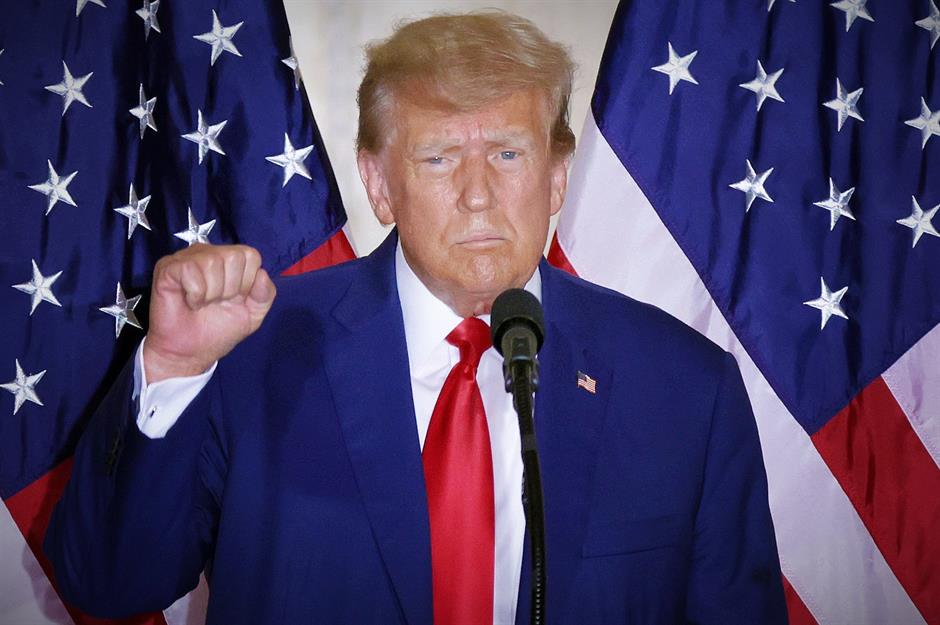
Donald Trump's name is at the heart of a trademark battle.
Read on to find out why a 2016 insult about the size of his hands has come back to haunt the former POTUS – and why the Supreme Court is now getting involved.
All dollar amounts in US dollars.
"Trump too small"
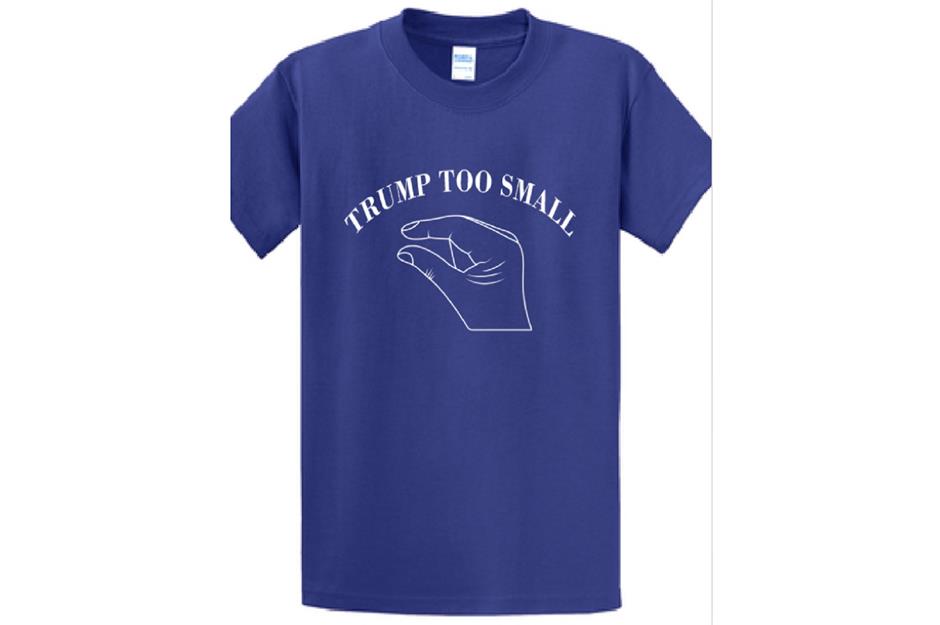
Since 2018, Californian employment lawyer, activist, and teacher Steve Elster has been trying to trademark the phrase "Trump too small" for a line of T-shirts.
According to NBC News, the T-shirts will feature the insult on the front, while the back will suggestively read "Trump's package is too small" above a list of the policy areas in which Elster feels he's lacking: the environment, civil rights, immigration rights, LGBTQ rights, workers' rights, voting rights, and affordable healthcare for all.
"Trump too small"
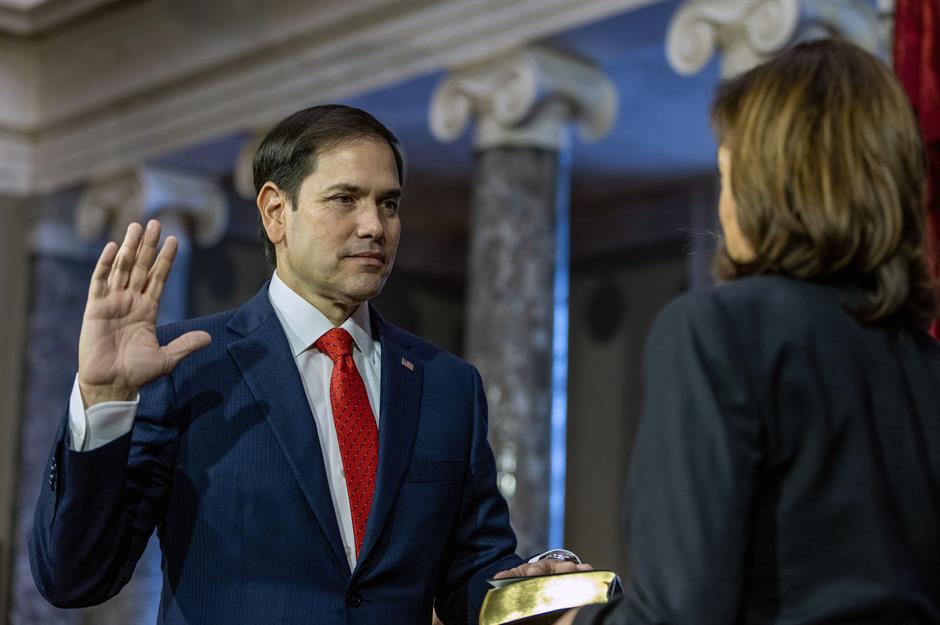
The message on the T-shirt was inspired by a comment made by Senator Marco Rubio (pictured) while fighting Donald Trump for the 2016 Republican nomination. During a debate, Rubio – who Trump frequently referred to as "little Marco" – took aim at Trump's physique, saying: "Have you seen his hands? And you know what they say about men with small hands. You can’t trust them."
Trump later responded to the jibe in a televised debate: "Look at those hands. Are they small hands? And he referred to my hands – if they're small, something else must be small. I guarantee you there's no problem. I guarantee you."
Sponsored Content
"Trump too small"
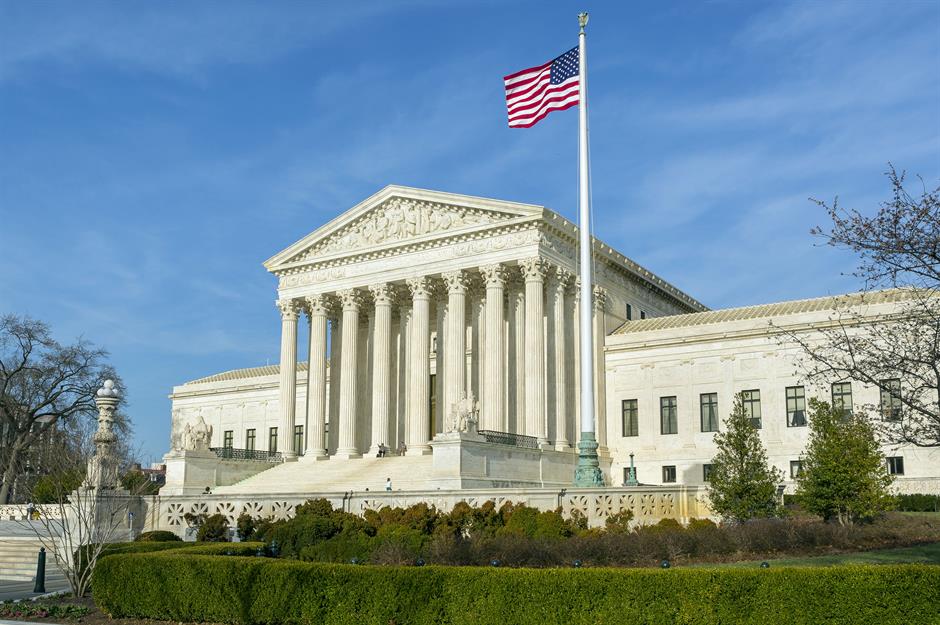
When Elster filed his trademark application in 2018, it was rejected on the grounds that you can't trademark people's names without the written consent of that person. But last year, the US Court of Appeals for the Federal Circuit unanimously agreed that the prospective trademark goes to "the heart of the First Amendment" and that rejecting the application was unconstitutional, on the grounds that Elster should have the freedom to criticize a government official.
Because the Court of Appeals wanted to overrule a federal law, the Biden administration has referred the matter to the Supreme Court. The first oral arguments in the case will be heard either late this year or early in 2024.
Trademark troubles
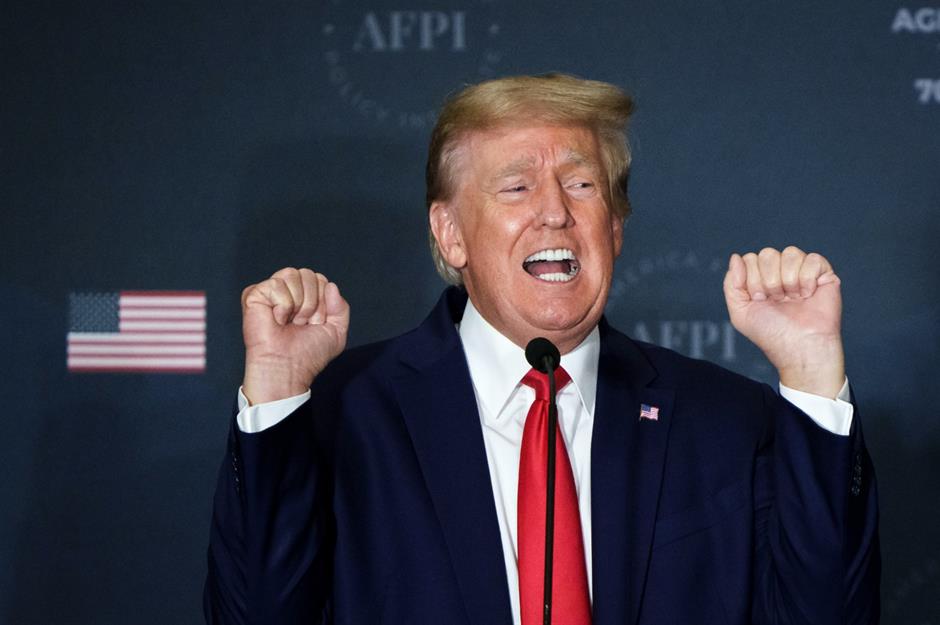
Elster's pending application isn't the only trademark that Trump would no doubt like to see denied.
Read on to discover why Trump's lawyers could take a German entrepreneur to court – and why condoms are at the center of the dispute...
Trump vs Lindner
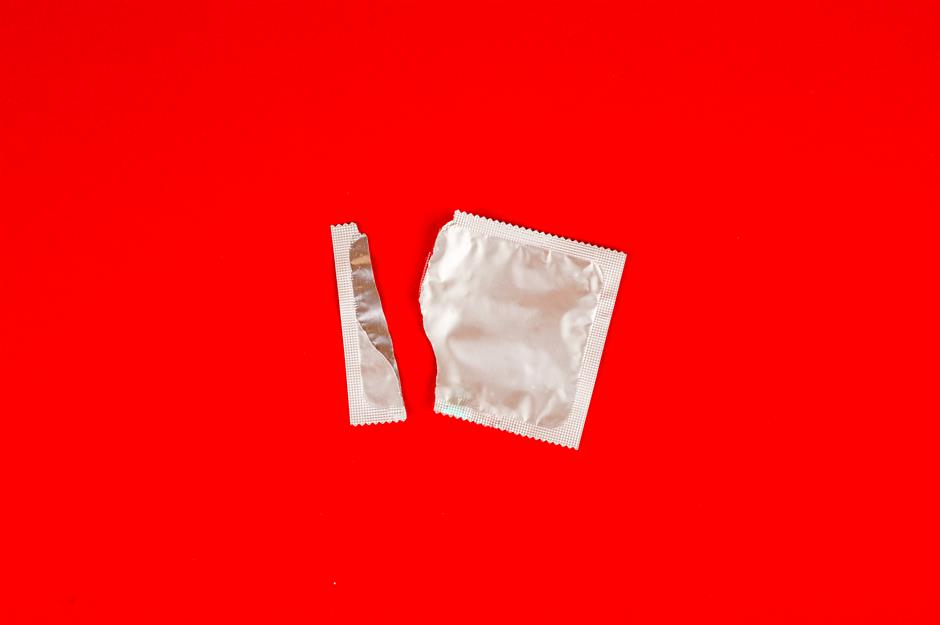
While Trump has copyrighted his name in America, he hasn't done so in Europe. And a German entrepreneur called Frank Lindner has reportedly filed an application with the European Union Intellectual Property Office (EUIPO) to start selling various items under the name 'Trump.' These products would include Trump-branded sparkling wine, beer, clothing, and even condoms...
Sponsored Content
Trump vs Lindner
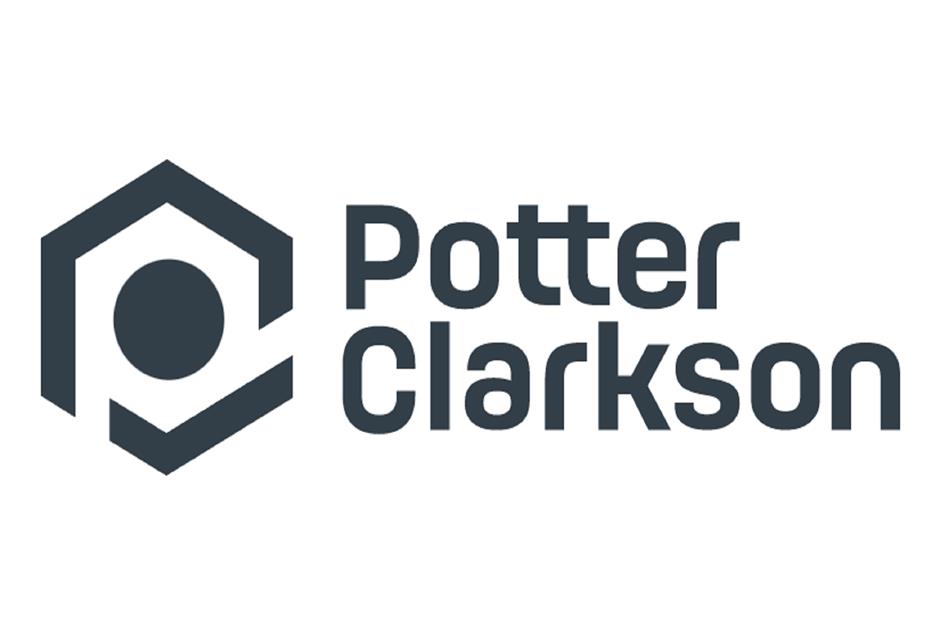
Unsurprisingly, Trump's lawyers have contested the application, which was filed in August 2021 with application number #018525756. The company DTTM Operations LLC, which usually handles Trump's trademarks, has hired the Swedish intellectual property law firm Potter Clarkson to help accelerate the European proceedings.
Trump vs Lindner
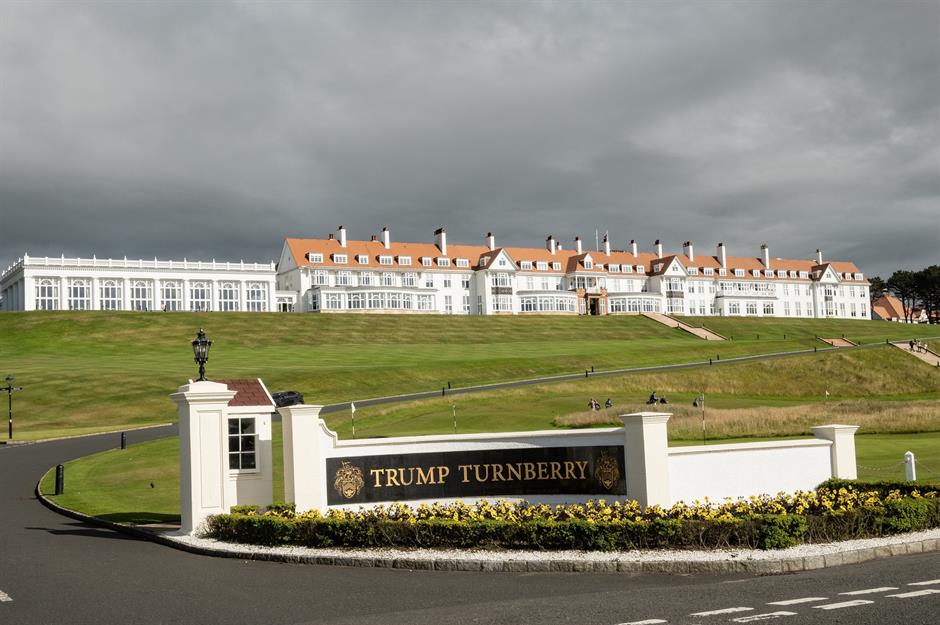
Lindner has apparently applied for a number of Trump-owned trademarks, claiming there's no evidence that the name is actually used on Trump's products.
But lawyers for the former POTUS have contested this, pointing out that businesses such as the Trump Turnberry hotel in Scotland (pictured) do bear the Trump name. In fact, his legal team presented around 200 pages of evidence that the Trump name had been used on products and venues throughout Europe.
Trump vs Lindner
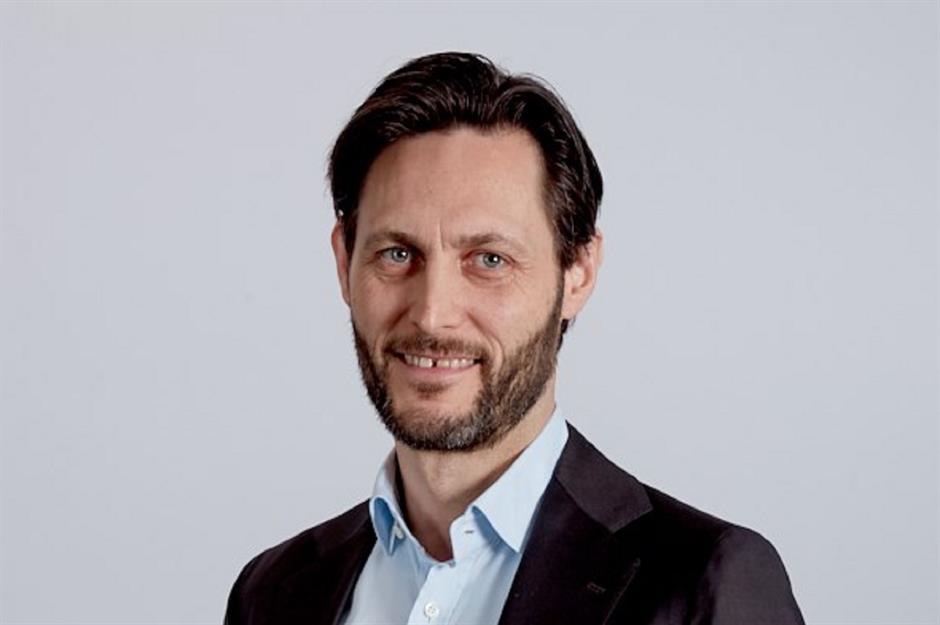
Potter Clarkson attorney Jesper Sellin (pictured) has argued that Trump's global profile must be considered, saying the public could "reasonably assume a connection with the contested application" and Trump. And he made a point of describing Trump as "the only federal officeholder in American history to be impeached twice."
Sponsored Content
Trump vs Lindner
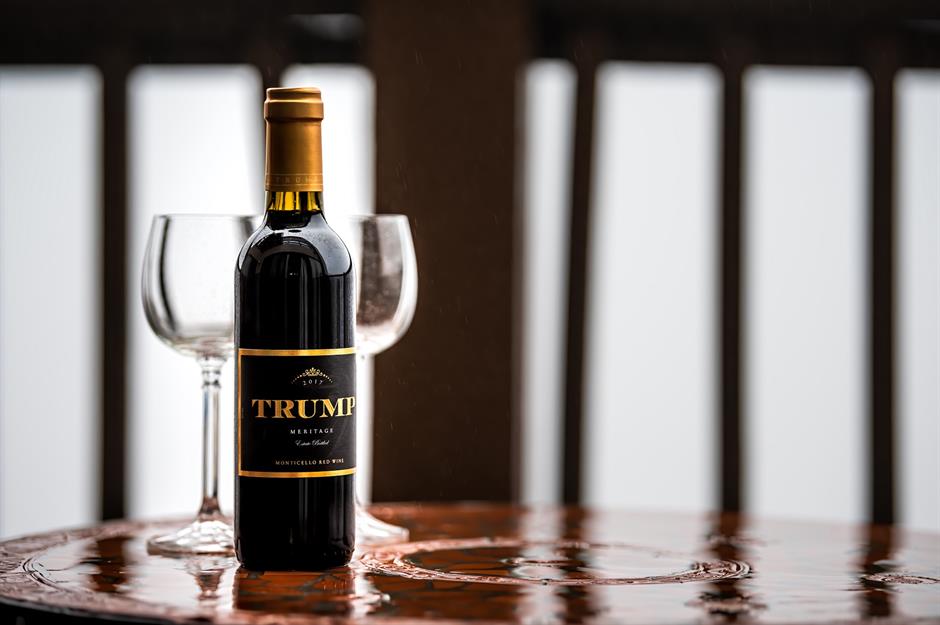
In response, Lindner's legal team has argued: "There is no likelihood of confusion between golf and hotel services on the one hand and condoms, alcoholic, and non-alcoholic beverages on the other. A hotel or a golf club is typically not a manufacturer of condoms or drinks." It's unclear what the current status of the case is, so you may yet be able to buy Lindner's Trump-branded products. What this space...
This picture shows a bottle of Trump-branded wine from the ex-president's winery in Charlottesville, Virginia.
Read on to discover some of the weird and wonderful things the former POTUS has trademarked – and one bizarre phrase he tried to trademark unsuccessfully – over the last 30 years.
Trump: The Game
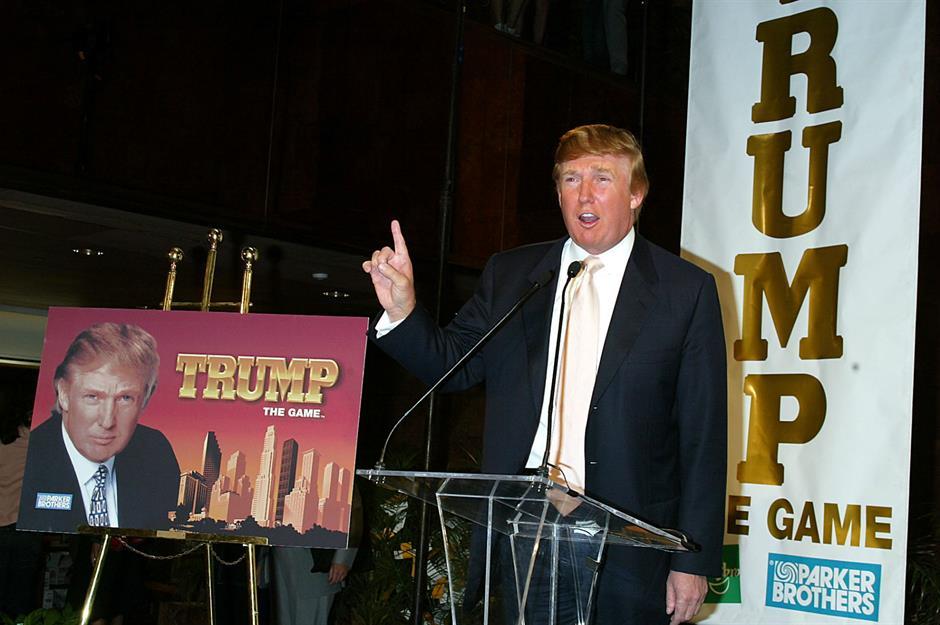
In 1989, American board game inventor Jeffrey Breslow had the idea to create a Monopoly-style game inspired by the ruthless business practices of Donald Trump.
According to an interview in The Washington Post, Breslow approached Trump about the game and was just a few minutes into his pitch when the future president cut him off, saying: "I like it – what's next?"
Trump the Game
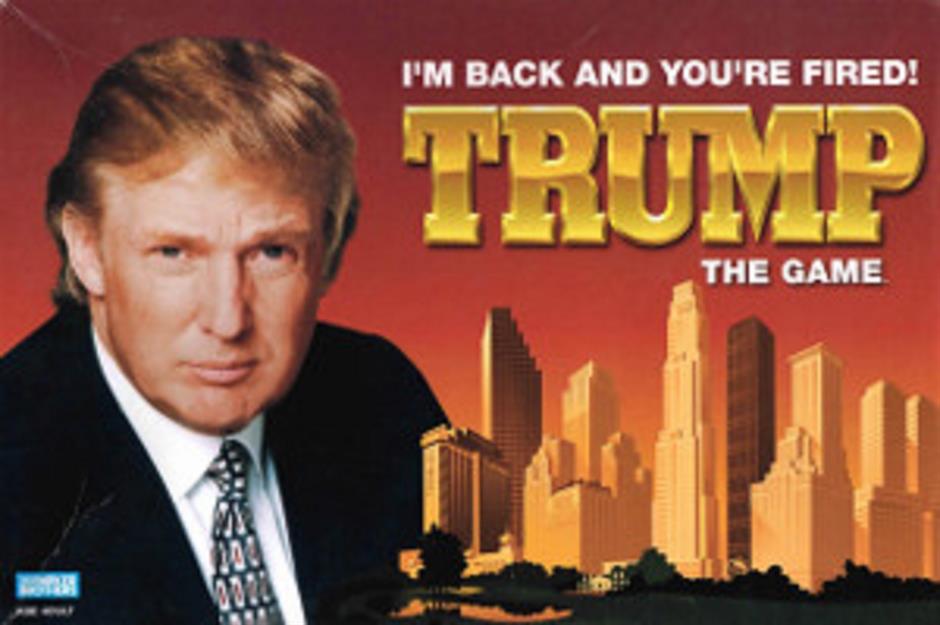
A quick-fire negotiation followed, during which Trump secured 60% of the profits, and then a year-long development period began with games publisher Milton Bradley.
The end result, Trump: The Game, was unveiled at a press conference in Trump Tower.
Declaring it to be "the game of the nineties," Trump announced that he would donate his share of the profits to charity – but there's no evidence that this ever actually happened.
What we do know is that the board game sold just 800,000 copies, with sales petering out due to over-complicated rules. The Trump: The Game trademark was reportedly abandoned the following year.
Sponsored Content
Tour de Trump
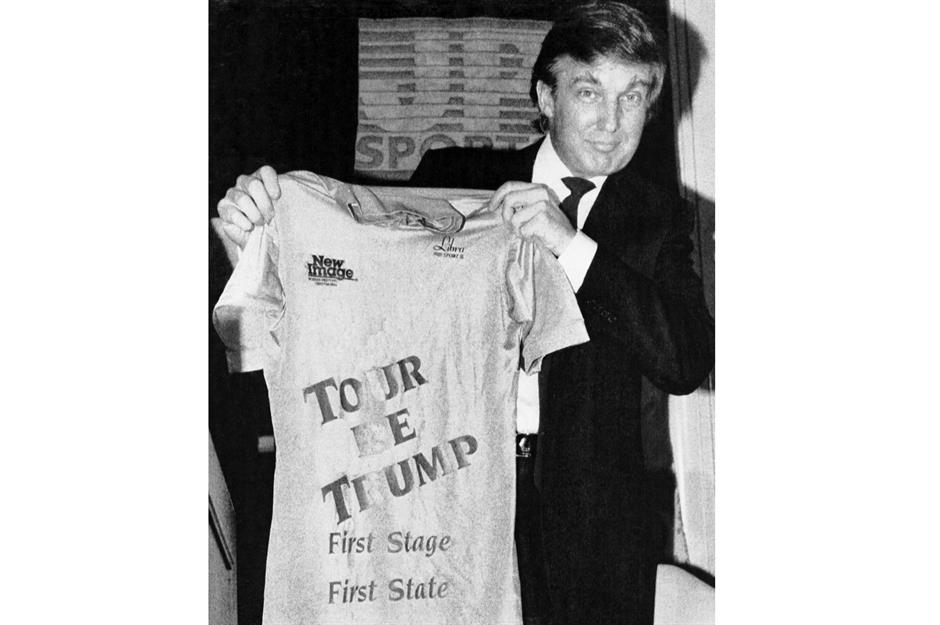
As a notorious devotee to private jets, Donald Trump might not be the most obvious person to front a major cycling event. But back in the late 1980s, he gave his name – and $750,000 – to one of the biggest bike races in US history: the Tour de Trump.
Now listed as "dead" on the USPTO database, the Tour de Trump trademark had its first outing in 1989, when an 11-day bike race took place across New Jersey.
The idea came about when American sportscaster Billy Packer decided there was a gap in the market for a US equivalent to the Tour de France. After approaching several executives who weren’t interested in sponsoring the idea, he went to Trump Tower to pitch his race.
Tour de Trump
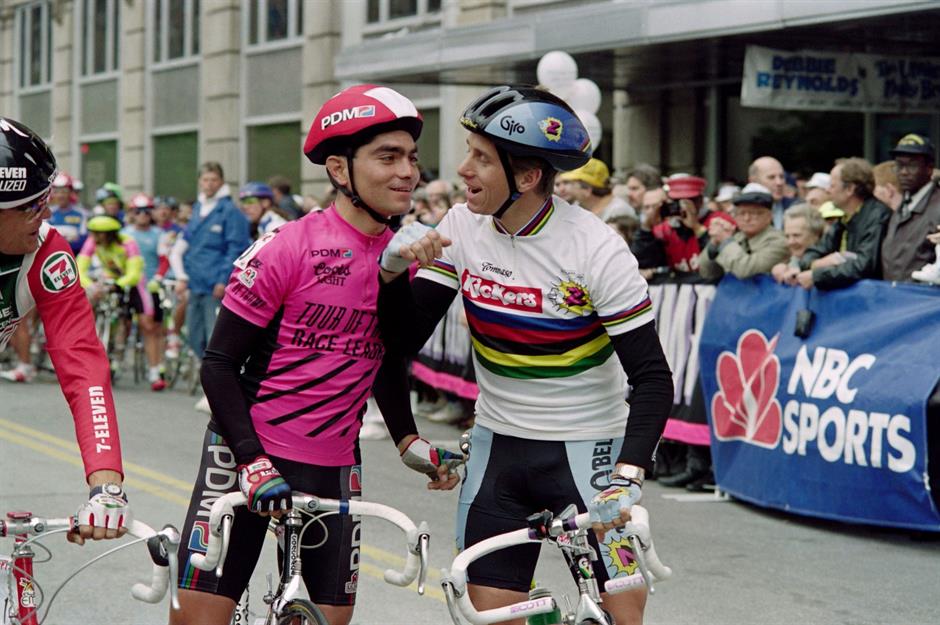
Trump was reportedly hesitant, explaining that he "practically fell out of [his] seat" when Packer suggested the name "Tour de Trump" for the event.
"I said, 'Are you kidding? I will get killed in the media if you use that name,'" he later recalled. But he quickly changed his tune, admitting that he found it "so wild [that] it’s got to work."
And it did, although it wasn’t free from controversy. At one point, organizers tried to issue a cease and desist order to a race called Tour de Rump on the basis that the name sounded too similar.
However, the Trump-titled race was enough of a success that the well-known Du Pont family later took over the sponsorship deal, renaming the event to Tour DuPont. The Tour de Trump trademark was eventually scrapped in 1998.
Central Park
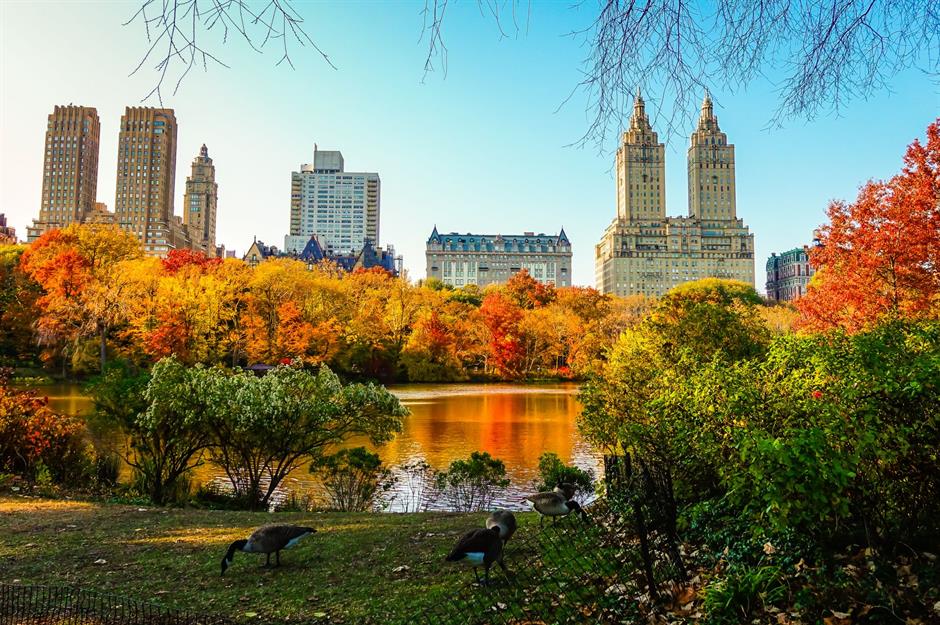
Trump hasn't just trademarked products and brands based on his own name.
You might be surprised to learn that one of his trademarks is "Central Park," which he successfully applied for in 1991.
According to The Week, Trump has used the Central Park trademark on a wide range of items and goods over the last three decades, including everything from garage parking spaces and pencil boxes to coffee percolators and chandeliers.
Sponsored Content
Central Park
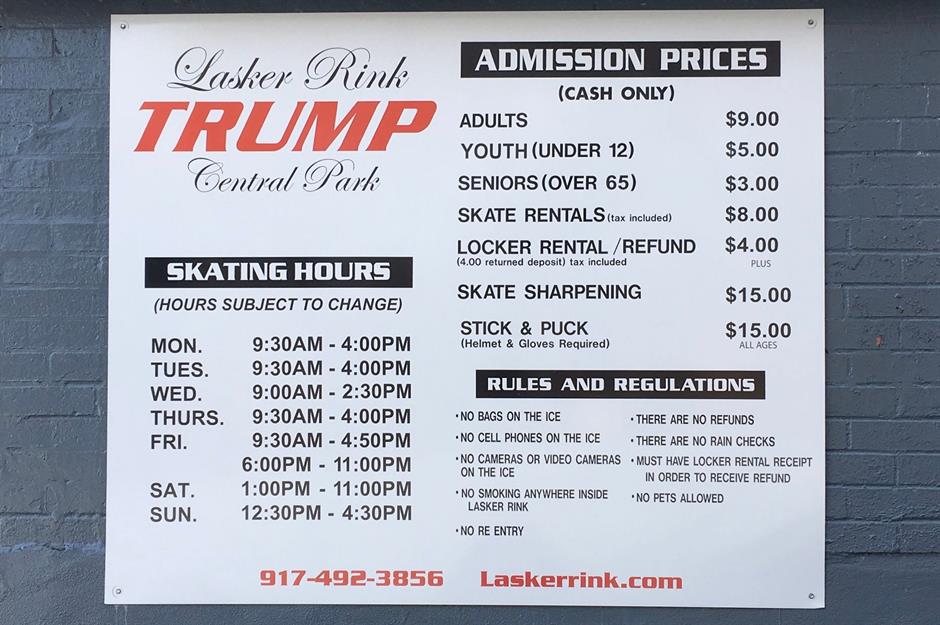
Trump has never revealed exactly how much money he's made from the Central Park trademark, which both New York City and the Central Park Conservancy have tried but failed to revoke.
A representative from the Trump Organization has apparently justified the trademark on the basis that "Mr. Trump, over the course of his career, has owned and developed some of the most iconic buildings in the city, many of which... sit only footsteps away from Central Park."
One example is the Lasker Rink (pictured), which was owned by the Trump Organization until the contract was overturned in January 2021 due to Trump's association with the Capitol riots earlier that month.
Gobi Dessert
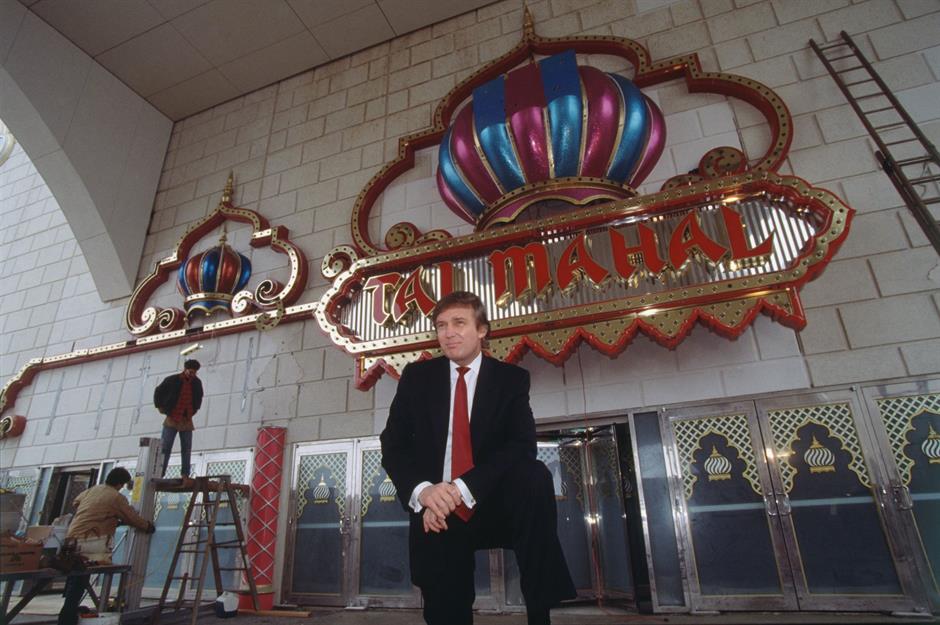
Some of Trump's past trademarks are a little more mysterious than others.
On 12 May 1992, Trump Taj Mahal Associates – the company that ran Trump's Taj Mahal Casino in Atlantic City (pictured) – registered a trademark for a hotel restaurant service called Gobi Dessert.
According to Corporation Wiki, the trademark was first used in December 1989, a few months before the casino opened in April 1990.
Gobi Dessert
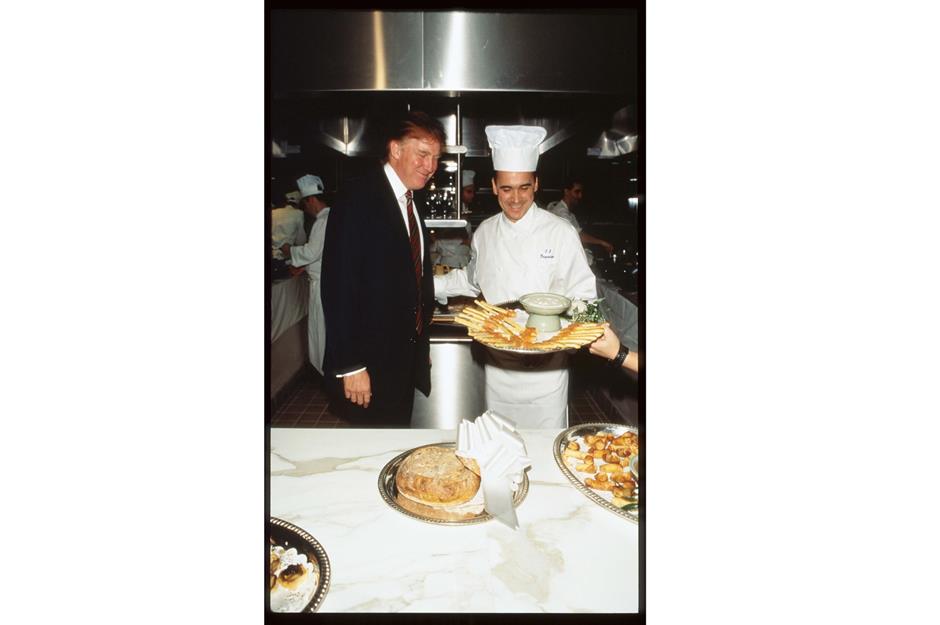
By 16 November 1998, however, the trademark had seemingly been scrapped.
It's not clear whether the service ever got off the ground or not. Trump Taj Mahal Associates was plagued with problems. The company filed for bankruptcy in 1993 and the eponymous casino was passed over to Trump Entertainment, before it too was forced to file for bankruptcy.
Other Trump restaurant ventures have enjoyed more success. This photo shows Trump and Jean-Georges Vongerichten, the chef at the Trump International Hotel in New York.
Sponsored Content
Fifth Avenue
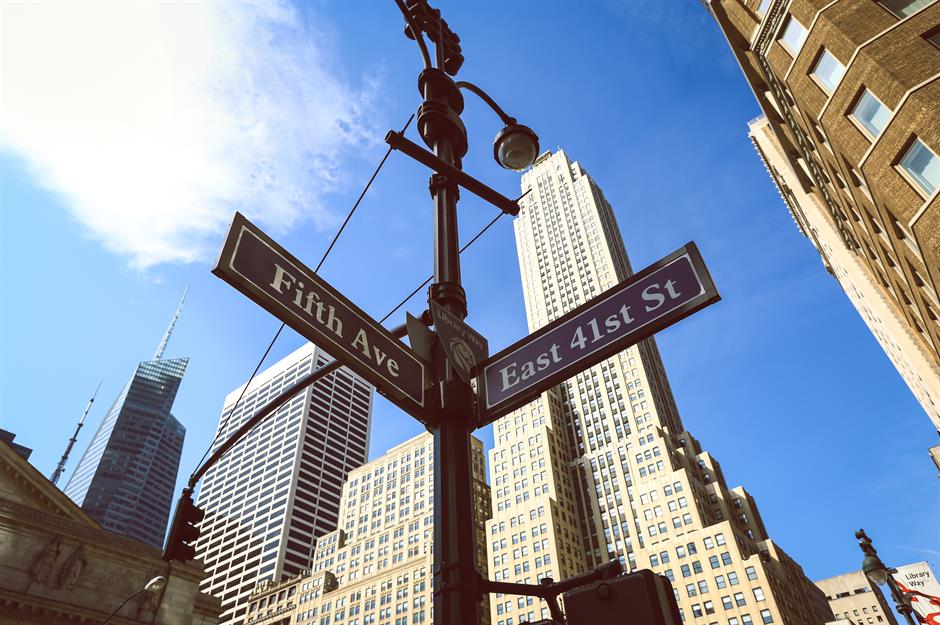
Following his successful registration of the Central Park trademark, Trump trademarked the phrase "Fifth Avenue" in 1993.
According to records, the filing was made under the category of "Education and Entertainment Services," specifically casino services.
Fifth Avenue
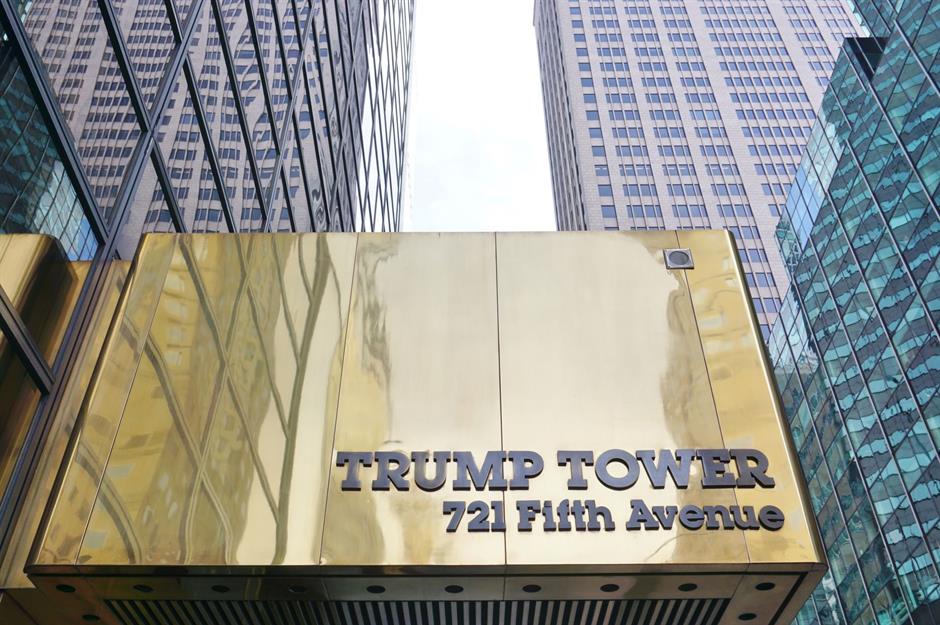
The infamous 58-floor Trump Tower is located at 721-725 Fifth Avenue, and Trump has apparently used its now-iconic address as inspiration for the branding of certain objects within his casinos.
Trump Super Speedway
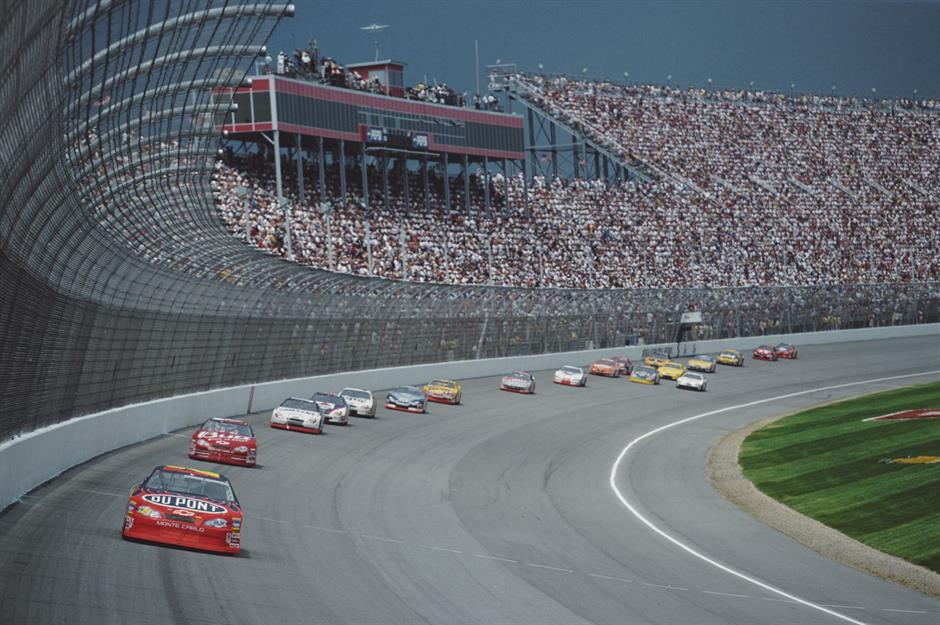
Tour de Trump wasn’t the former President’s only foray into sports racing.
In 2004, he filed a trademark for the Trump Super Speedway: a proposed 2,900-acre NASCAR racetrack. As well as the track itself, the site would include hotels, golf courses, and retail stores.
According to initial plans, there would be room for 75,000 spectators – though Trump reportedly wanted to be able to host up to 100,000, with the ability to expand that even further to 300,000.
This would have made it not just America's largest NASCAR track but also the country's largest sports stadium too.
Sponsored Content
Trump Super Speedway
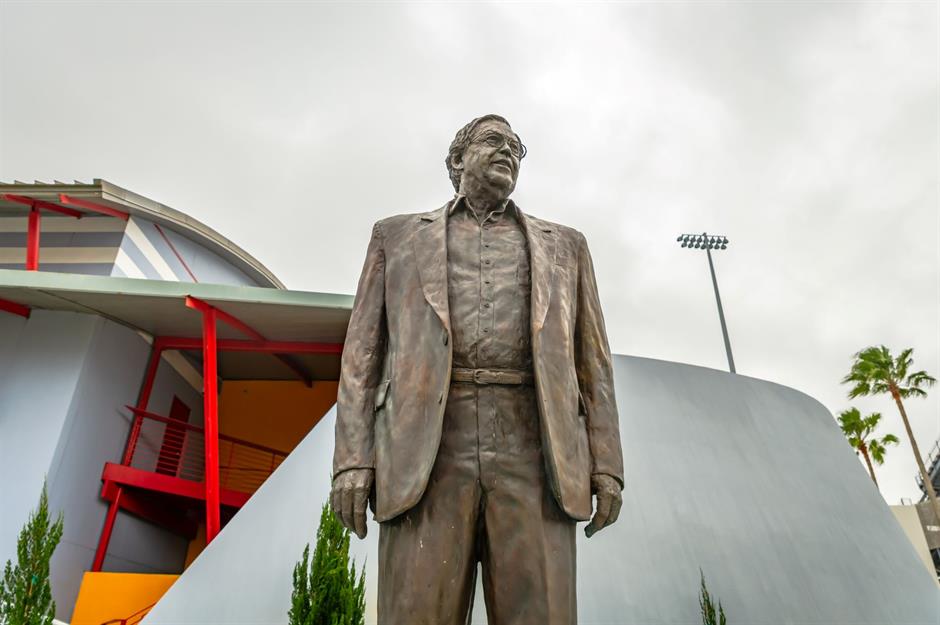
These vast plans earned the project the nickname "NASCAR Disneyland." But the fantastical track never actually materialized.
After the death of NASCAR President Bill France, Jr. in 2007 (his statue is pictured), plans for the project were shelved and Trump never renewed the Trump Super Speedway trademark.
The Trump Follies
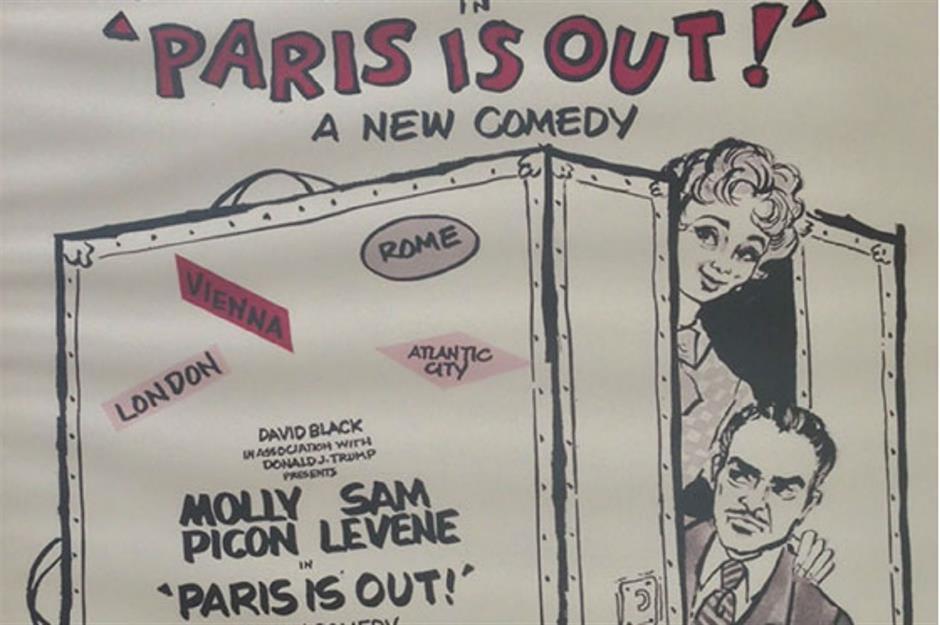
Trump is no stranger to the entertainment sector. From hosting The Apprentice to his unforgettable cameo in Home Alone 2, the former POTUS was a regular fixture on TV screens long before he entered politics – and even helped to finance a Broadway show titled Paris Is Out! in 1970 (pictured).
It’s perhaps unsurprising, then, that in 2006 he registered a trademark for his very own entertainment business.
The Trump Follies
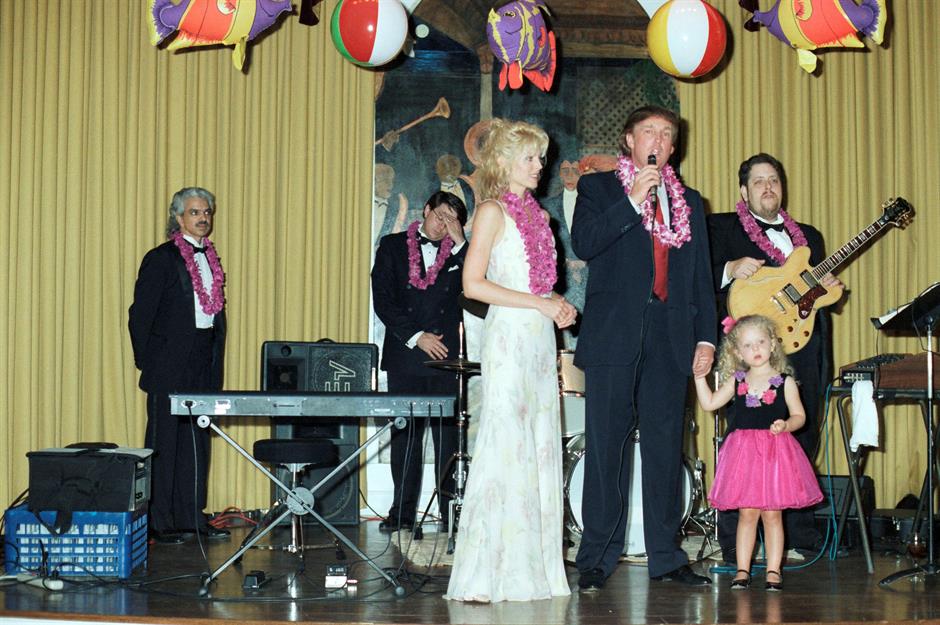
Called The Trump Follies, the company summarized itself as offering: "Entertainment services, namely, dramatic theater productions, musical theater productions; live comedic performances; cabarets acts; entertainment in the nature of live visual and audio performances, namely, musical, variety, and comedy shows; providing an on-line radio program in the fields of variety, comedy, drama, and talent shows; providing an on-line television program in the fields of variety, comedy, drama, and talent shows; providing a web site featuring musical, dramatic, and comedic."
Despite its perhaps excessive ambitions, however, the company came to nothing, and the fatalistic trademark was abandoned just three years later.
Sponsored Content
The Donald
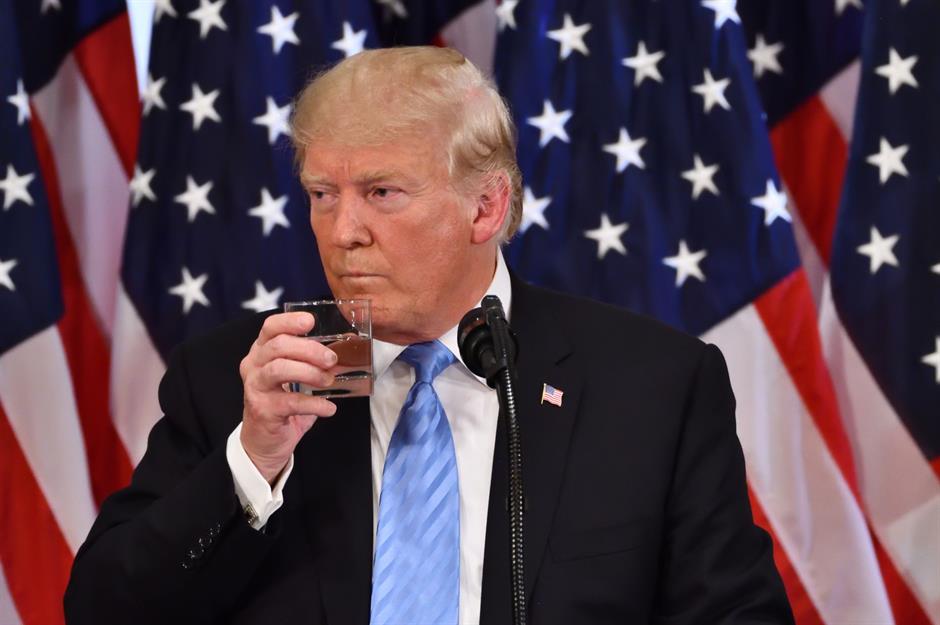
The famously teetotal Trump hasn't let his aversion to alcohol stop him from trying to break into the lucrative booze sector.
Over the years, he's registered at least three trademarks for Trump-branded alcoholic drinks, including The Donald, a range of pre-prepared cocktails.
The trademark was eventually canned in 2007, leaving other lucky companies free to use the name.
The Donald
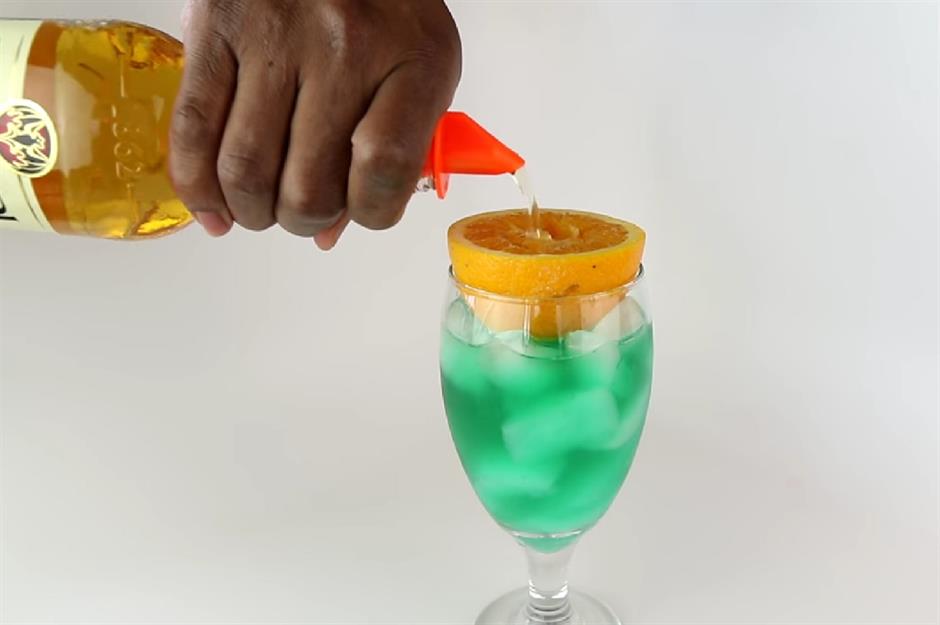
After Trump became president in 2016, for example, Madison's Restaurant in Steady Brook, Newfoundland unveiled its own signature cocktail called The Donald: a vodka-based drink complete with a sour candy strip folded into a dollar sign.
Meanwhile, the website Tipsy Bartender has shared a recipe for another Trump-inspired cocktail (pictured), which is green "to symbolize [Trump's] money" and topped with an orange "to symbolize his hair." Deep.
"Rigged election!"
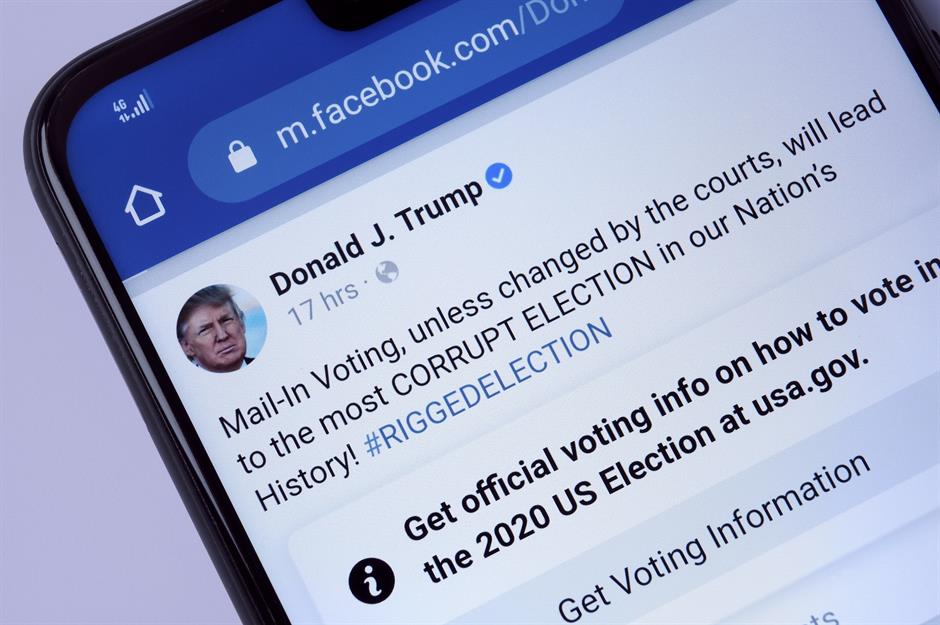
According to emails obtained by the House committee that was investigating Trump's involvement in the 6 January Capitol riots, the former president tried to trademark the phrase "Rigged Election!" a couple of days after losing to President Biden. Trump publicly used the phrase almost 100 times in 2020 and 2021, according to reports. And on 9 November 2020, then-aide Dan Scavino tried to secure the exclusive rights.
Scavino emailed Trump's son-in-law Jared Kushner, writing: "Hey Jared! POTUS wants to trademark/own rights to below, I don’t know who to see ― or ask ... I don’t know who to take [sic] to."
Below the message were two phrases: 'Rigged Election!' and 'Save America PAC!' The latter refers to Trump's political action committee (PAC) Save America, which was launched to raise funds for pro-Trump causes.
Sponsored Content
"Rigged election!"
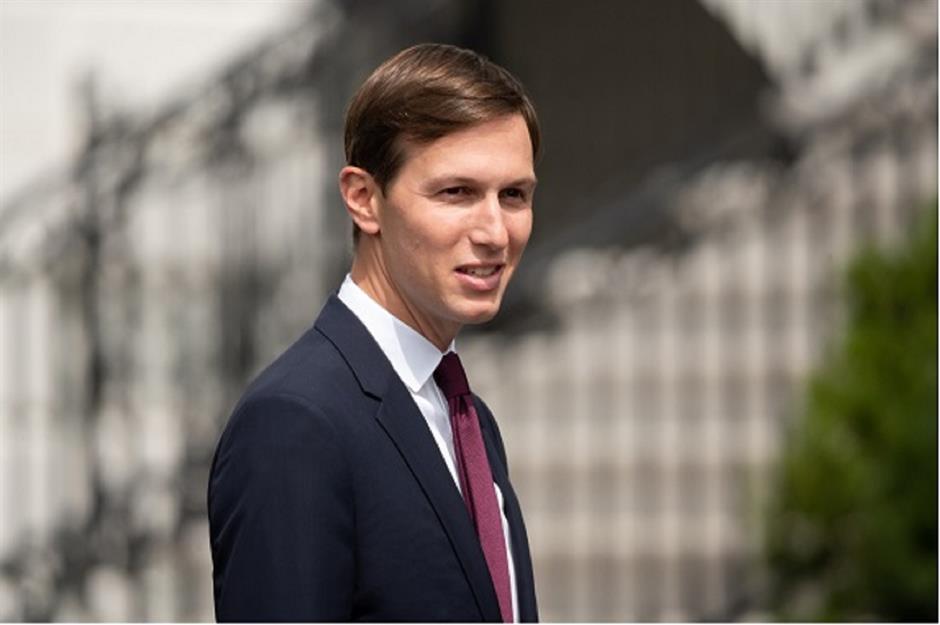
Email records show that Kushner (pictured) forwarded the message to Trump's son Eric as well as various people working for Trump's 2020 campaign, writing: "Guys – can we do ASAP please?" Eric replied that web URLs for both phrases had already been registered, while chief financial officer for the campaign Sean Dollman wrote: "‘Save America PAC’ is already taken/registered, just confirming that. But we can still file for ‘Save America.’"
HuffPost reported that the emails were sent before the creation of Save America PAC, meaning the trademark "efforts in that case were apparently successful." But with no mention of "Rigged Election!" on the United States Patent & Trademark Office (USPTO) database, it seems the application for that phrase was never approved.
Regardless of Trump's mixed success, the emails were of interest to the 6 January committee because they show that the former POTUS was making allegations of voter fraud long before any evidence that the election was rigged could have come to light.
Trademarks in China
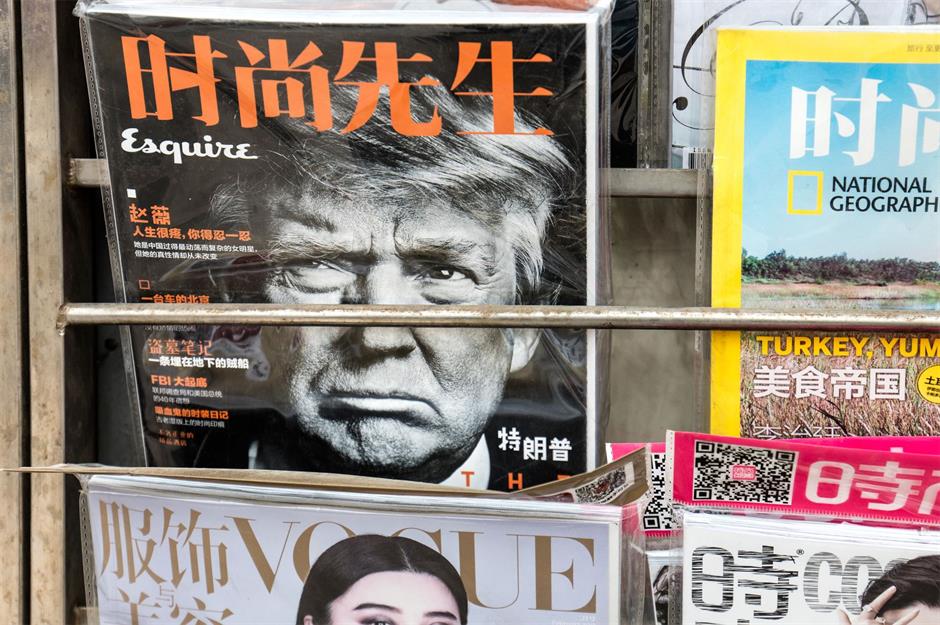
While serving as president, Trump had a famously fractured relationship with China.
Arguably, then, his most surprising trademarks are those that he's filed in the country, many of which have given him the right to attach his name to Chinese construction projects up until 2027.
In March 2017, he had 38 new Chinese trademarks approved, which will enable him and his family members to develop overseas business opportunities. According to official rulings, these can include retail ventures, hotels, bodyguard services, and even escort agencies.
Trademarks in China
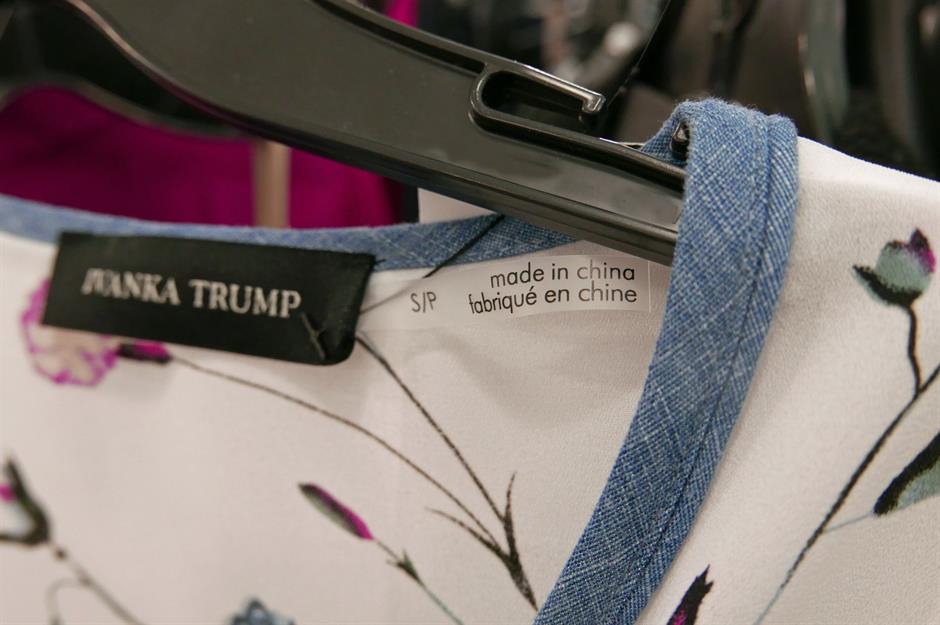
In 2018, Ivanka, Trump's oldest daughter, also came under fire for being granted 16 trademarks in China, some of which she'd filed before dissolving her eponymous clothing line.
The trademarks included branded fashion products but also some decidedly more bizarre items, such as voting machines, nursing homes, and even sausage casings.
Outside of his trademark adventures, find out how Donald Trump makes his money
Sponsored Content
Comments
Be the first to comment
Do you want to comment on this article? You need to be signed in for this feature